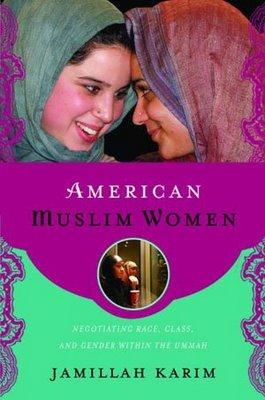American Muslim Women: Negotiating Race, Class, and Gender Within the Ummah

Jamillah Karim takes an extremely complex and contentious set of topics—race, class, gender and faith—and skillfully examines them within the framework of the ummah, or the Muslim community. American Muslim Women is an ethnographic account, but it is also a deeply personal look into the lives of a group of women whose voices are not typically heard in American society.
Karim interviews both African American and South Asian women in Atlanta and Chicago, and though her sample group is relatively small, she is astonished at the many layers of racial and ethnic hierarchies she finds. She is also surprised at the degree to which "women in particular move outside their ethnic Muslim spaces and interact with other Muslim ethnic groups." Karim explains that in many cases it is the inequality itself, both gender- and racially-based, that causes women to cross racial and ethnic lines and form a common American Muslim identity.
One of the strongest chapters of American Muslim Women focuses on second-generation Muslim women in Chicago after September 11, 2001. In the precarious and suspicious post-9/11 environment, American Muslims had to both defend their faith as peaceful and humane and to reinforce their identity as Americans. These two desires, though not necessarily conflicting, created a struggle among American Muslims to renegotiate their place within the global ummah. These complex and contradictory interplays form the compelling center of American Muslim Women. It is a finely crafted and contemplative work that challenges its readers to examine the assumptive lens through which they may view their neighbors, friends, and fellow citizens. It is not only the Muslim community that must deal with the racism, sexism, and discrimination in the United States, but all Americans.
Great review. It reminds me of a book I read recently by Saba Mahmood in which she talks about Islamic women in Egypt wearing the veil as a sign of their own agency. I think it's important to understand that Muslim women are not always oppressed by their religion, but rather often make the strong and independent decision to live by their faith.